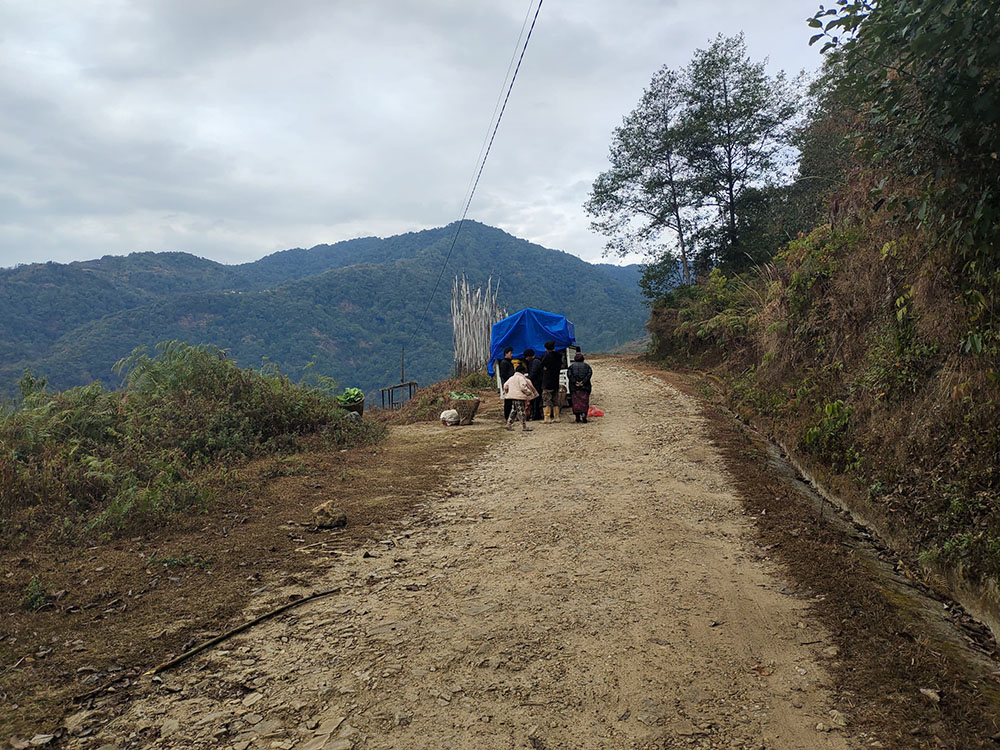Lhakpa Quendren
Tsirang: Despite the connectivity of villages in Tsirang through farm roads, agricultural development and economic growth remain hindered by inadequate road infrastructure. The persistently poor condition of these roads exacerbates the daily challenges faced by farmers.
During summer, the roads turn muddy, while in winter, they become dusty, further complicating transportation for farmers and farm workers.
This issue is particularly pressing in Tsirang, known as the vegetable capital and a significant vegetable producer in the country. Despite the typically low traffic volume on rural roads, the continuous movement of vehicles, especially those involved in the vegetable business, adds strain to the already struggling road network.
For instance, the gewog centre road of Patshaling, constructed 15 years ago, has not been properly maintained, despite a recent base-course attempt which quickly deteriorated.
Residents like Pema Wangdi Drukpa highlight the burdensome nature of road maintenance, where villagers must contribute labour monthly. Moreover, the poor road conditions not only drive up transportation costs but also lead to lower vegetable prices due to the challenges faced by dealers from Paro and Thimphu in accessing the area.
Pema Wangdi Drukpa stressed the importance of upgraded farm roads, along with access to electricity and water, as critical factors in enhancing agricultural productivity, stimulating economic development, and alleviating poverty in rural communities.
The consequences of deteriorating roads extend beyond agricultural concerns. In remote villages like Tsakaling, parents have had to construct temporary shelters near schools due to inadequate housing caused by the need for school staff accommodation.
Tashi Wangmo’s experience underscores the sacrifices made by parents to ensure their children can attend school.
The condition of gewog center roads leading to areas such as Gosaling, Doongalagang, Phuentenchu, Semjong, Tsirangtoed, and Sergithang has also deteriorated significantly, with potholes and damaged drainage posing risks to travelers.
In response to these challenges, residents have resorted to alternative routes, such as the Burichu-Sergithang bypass road, even for travel to major towns like Thimphu and Damphu.
Gopal Tamang, a commuter, emphasised the urgent need for major maintenance to ensure road safety and prevent accidents that could disrupt farming activities and reduce productivity.
Neelam Subba, a shopkeeper, highlights the broader economic impact of poor roads, noting that without improvements, everything becomes more expensive for residents. She echoes the expectations of residents who are relying on the government to fulfil its promises of road upgrades made during election campaigns.
Vegetable dealers lament the damage to produce during transportation due to road conditions, which ultimately affects market value and quality.
The impact of bumpy roads on bruising and rotting of fruits and vegetables underscores the urgent need for road improvement to sustain local economies and livelihoods.


